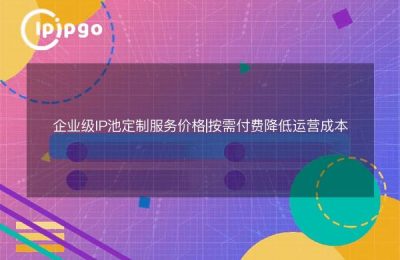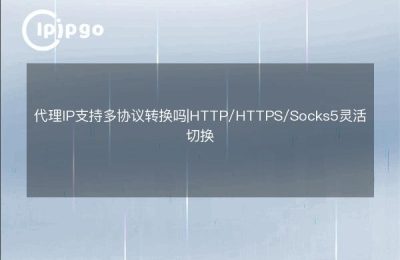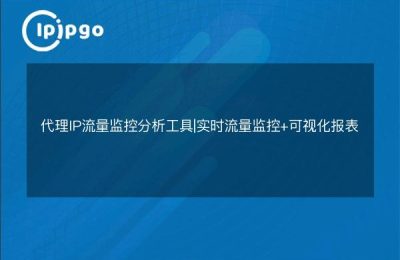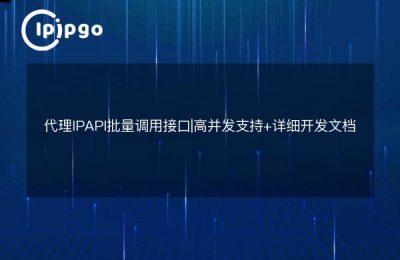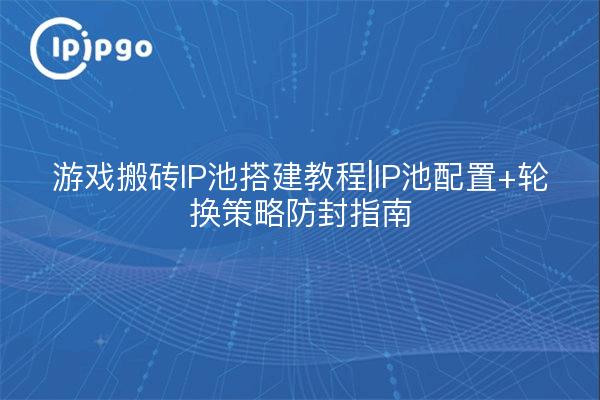
Game brick party must see: with proxy IP pool to solve the account wind control problems
In the field of game resource trading, multi-account operation is a conventional operation. However, the traditional single IP multi-account is very easy to trigger the platform detection mechanism, the light is to limit the transaction, the heavy is permanently blocked. In this article, from a practical point of view, we will teach you to use proxy IP to build a safe operating environment.
I. Analysis of the core role of the IP pool
The gaming platform is mainly used throughIP address + device fingerprintDouble identification of the user. Three common mistakes made by the average player:
1. Repeated switching of multiple accounts on the same device
2. All accounts share a single IP address
3. Ignoring the geographic reasonableness of IP addresses
Residential Proxy IP PoolBy simulating the network environment of real users, each game account has an independent IP, effectively reducing the risk of association.
Second, IP pool building four steps
Step 1: Choose the right type of agent
It is recommended to use ipipgo residential proxy IP, whose real home broadband attributes are more in line with the characteristics of ordinary players. Dynamic IP vs. static IP:
| typology | Applicable Scenarios |
|---|---|
| dynamic IP | Frequent account switching, batch operation |
| static IP | Account maintenance, long-term online |
Step 2: Quantitative planning
Recommendation1:3Proportionally configure the number of IPs (Example: 10 accounts with 30 IPs). ipipgo supports real-time IP extraction by API and flexible expansion of pool size.
Step 3: Protocol Adaptation
Select a proxy protocol based on the game client type:
- Endgame: Prioritized SOCKS5 protocol (UDP transport support)
- Hand/page games: HTTP/HTTPS protocol is sufficient
Step 4: Validity testing
Three tests must be done after the new IP is connected:
1. Delay test (<200ms preferred)
2. IP purity detection (whether tagged or not)
3. Game client login test
III. Practical-level rotation strategies
Time rotation method:
- Normal operation: IP change every 30-60 minutes
- Sensitive operations (large transactions/cross-service transfers): replaced immediately after each operation
- Hanging time: use static IP to keep 6-8 hours online
Smart Trigger Mechanism:
- Switch IP immediately when encountering CAPTCHA
- Network latency >300ms automatic replacement
- Mandatory rotation for up to 5 operations under the same IP.
Fourth, anti-blocking must kill techniques: geographic location camouflage
This is accomplished through ipipgo's region filtering feature:
- Account registration IP and login IP in the same province and city
- IPs of both parties to the transaction within a reasonable distance
- Simulate the real movement trajectory when operating across districts (example: Shanghai → Hangzhou → Nanjing segment switching)
V. Answers to frequently asked questions
Q: Do I have to maintain my own IP pool?
A: It is recommended to use ipipgo's API interface to automatically manage itsIP survival rate >98%The validity checking function is included in the program.
Q: Which is better, dynamic IP or static IP?
A: Recommended7:3 hybrid program, 70% Dynamic IP is used for regular operations and 30% Static IP is used for core account maintenance.
Q: What should I do if my IP is suddenly blocked?
A: Perform the three steps immediately:
1. Disconnect all current connections
2. Replacement of the device MAC address
3. Obtaining new regional IPs through ipipgo
By reasonably configuring ipipgo's global residential IP resources with a scientific rotation strategy, you can effectively extend the account life cycle. Remember the core principle:Make each account feel like an individual real player, which is the fundamental way to combat platform detection.


